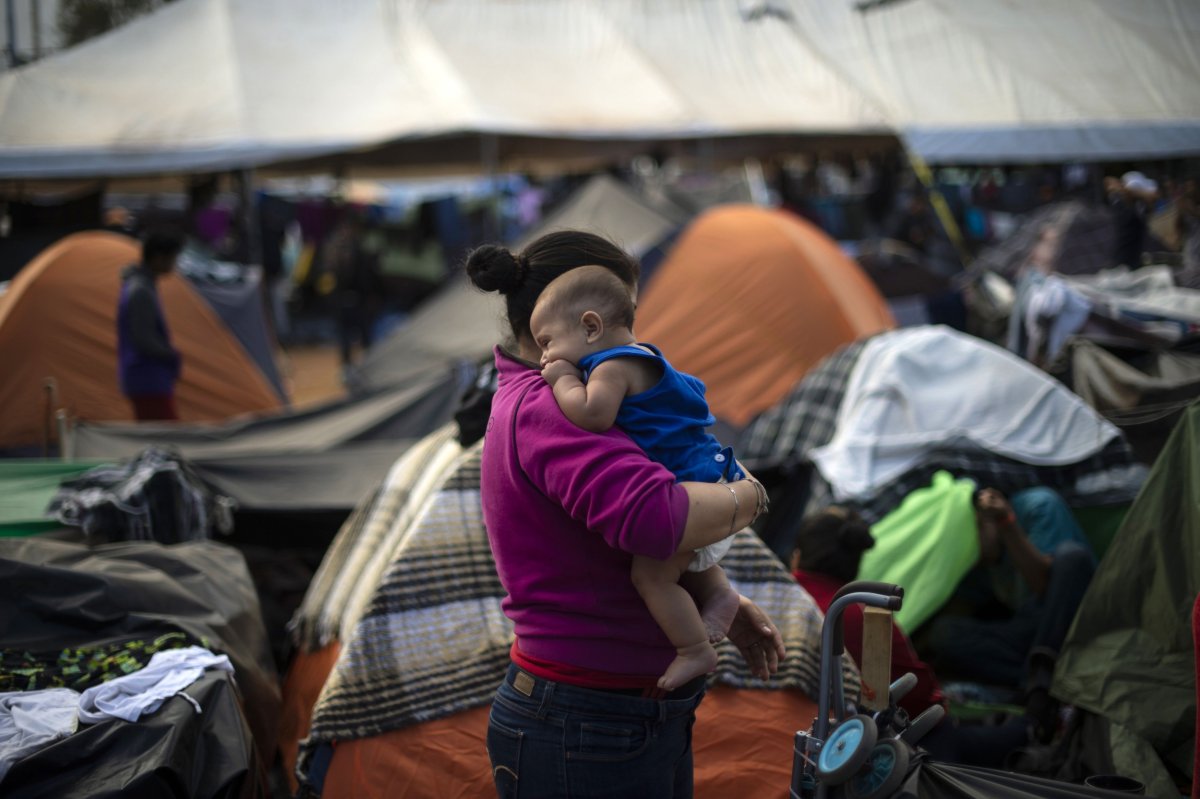The Trump administration's widely condemned "Remain In Mexico" policy has forced more than 13,000 asylum seekers under the age of 18 to wait in high-crime Mexican border towns while their immigration cases are processed in the U.S., according to a new Reuters analysis.
Among those 13,000, Reuters found there were at least 400 infants who had been forced to wait south of the border, with many babies and their families staying in crowded shelters and tents by ports of entry or on the streets for weeks, if not months.
While unaccompanied minors cannot be turned back to Mexico under the Migrant Protection Protocols, or "Remain In Mexico" policy, which has seen tens of thousands of asylum seekers forced to wait in Mexico while their immigration cases in the U.S. are processed, children who arrive at the U.S. border with their families can be sent back.
As Newsweek has previously reported, hundreds of people have been living on the streets of border towns like Matamoros, where as many as 1,500 people were estimated in a report released earlier this month by Human Rights First to be sleeping near the town's designated port of entry into Brownsville, Texas.
In its report, Human Rights First said that it had already identified at least 343 cases in which asylum seekers affected by the Remain in Mexico policy had reported being "violently attacked or threatened in Mexico," including falling victim to kidnapping, rape and other violence.
That number was more than triple the 110 incidents the organization said it had first identified in August. However, Human Rights First said it was likely a "gross underestimate of the harm to returned asylum seekers."
The dangers of being forced to remain in Matamoros, situated in the northeastern Mexican state of Tamaulipas, is clearly outlined in the U.S.'s own travel advisory for Mexico, which lists Tamaulipas as a "level 4: Do Not Travel region," where "violent crime, such as murder, armed robbery, carjacking, kidnapping, extortion and sexual assault" are "common."
The travel advisory also warns that "gang activity, including gun battles and blockades" is "widespread," while "armed criminal groups" are known to "target public and private passenger buses, as well as private automobiles traveling through Tamaulipas, often taking passengers hostage and demanding ransom payments."
Immigration advocacy groups have sought to sue the Trump administration in a bid to halt the controversial MPP policy, with the 9th U.S. Circuit expected to rule on the case soon.

Uncommon Knowledge
Newsweek is committed to challenging conventional wisdom and finding connections in the search for common ground.
Newsweek is committed to challenging conventional wisdom and finding connections in the search for common ground.
About the writer
Chantal Da Silva is Chief Correspondent at Newsweek, with a focus on immigration and human rights. She is a Canadian-British journalist whose work ... Read more
To read how Newsweek uses AI as a newsroom tool, Click here.








